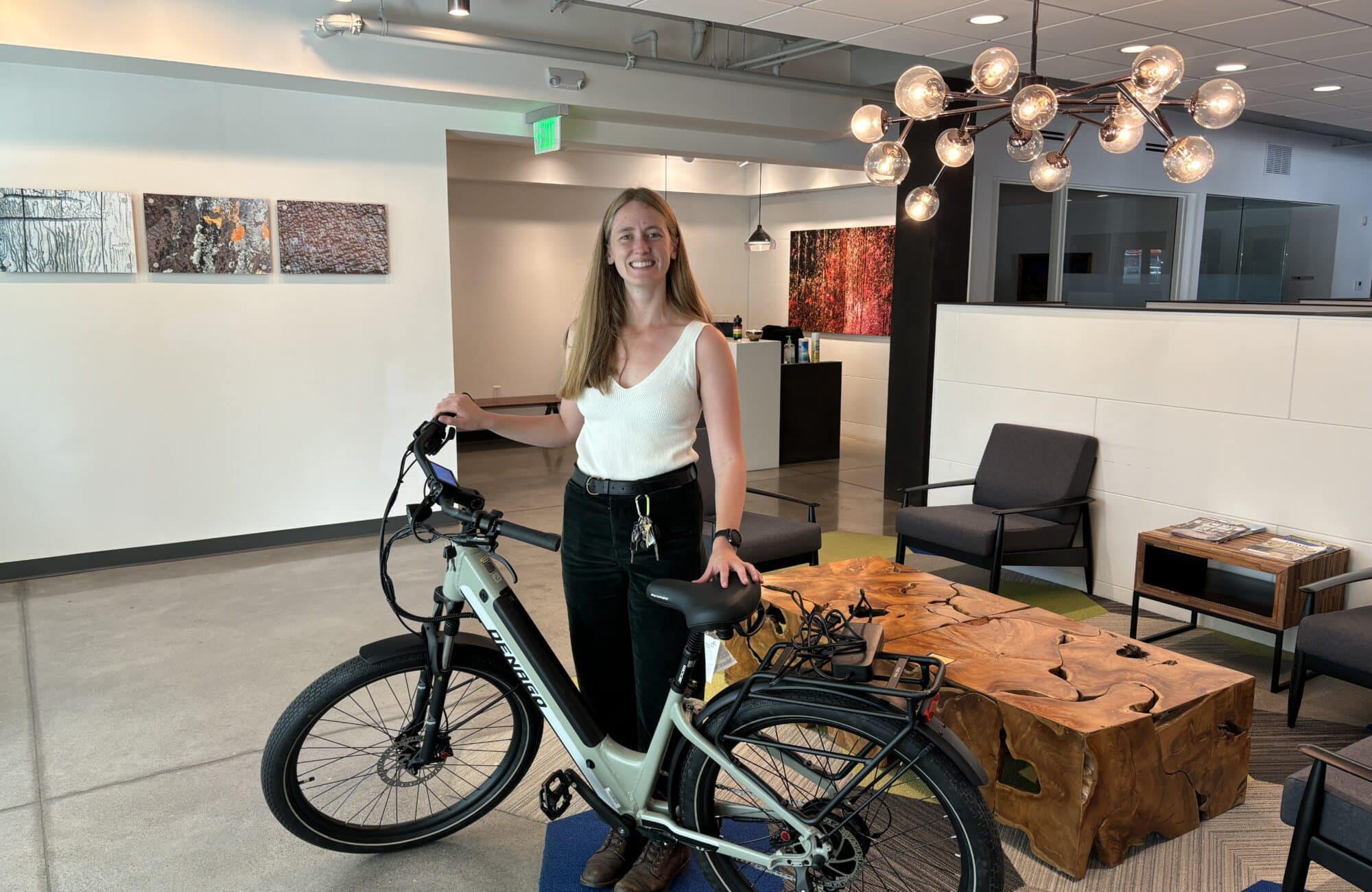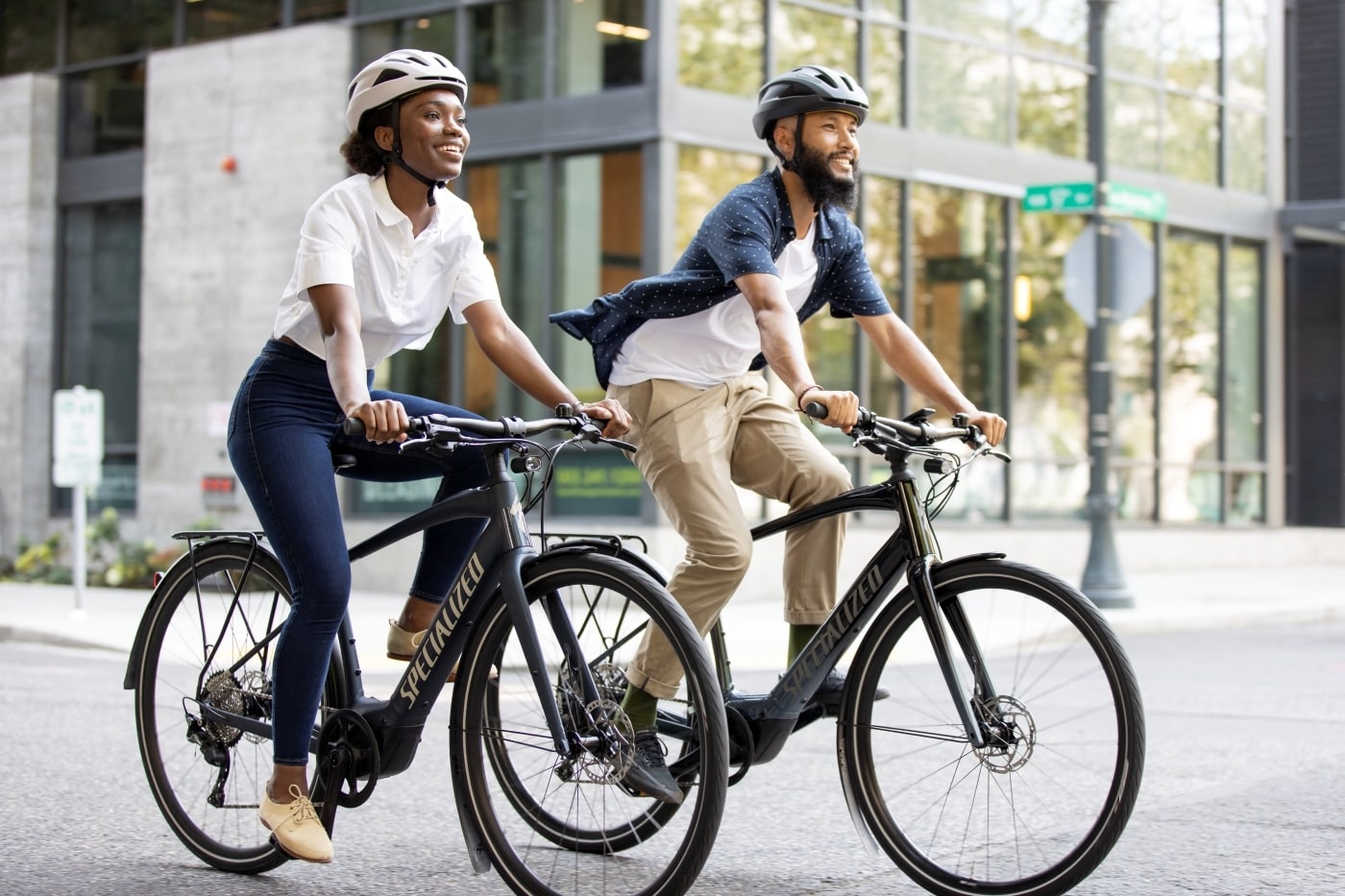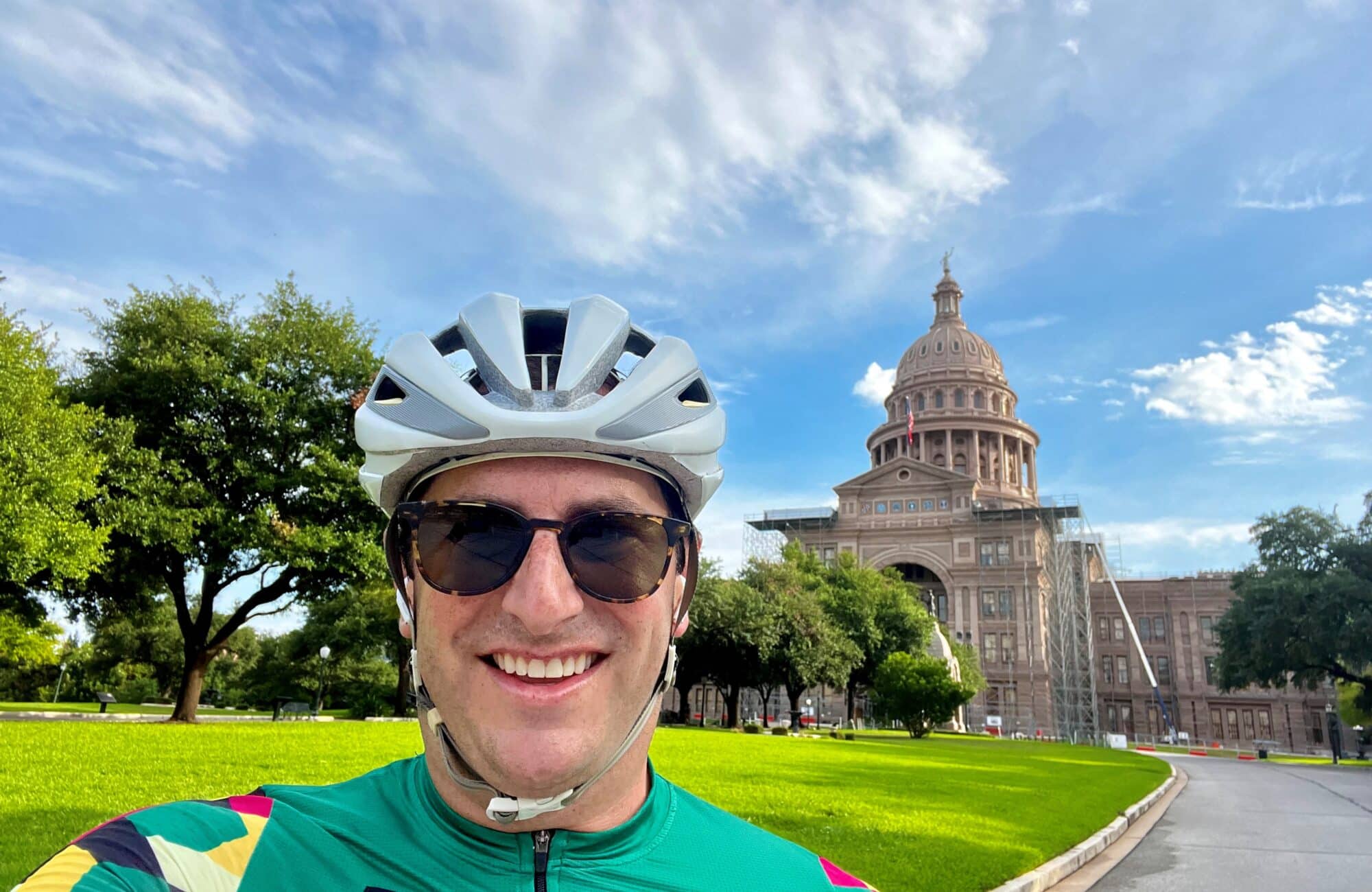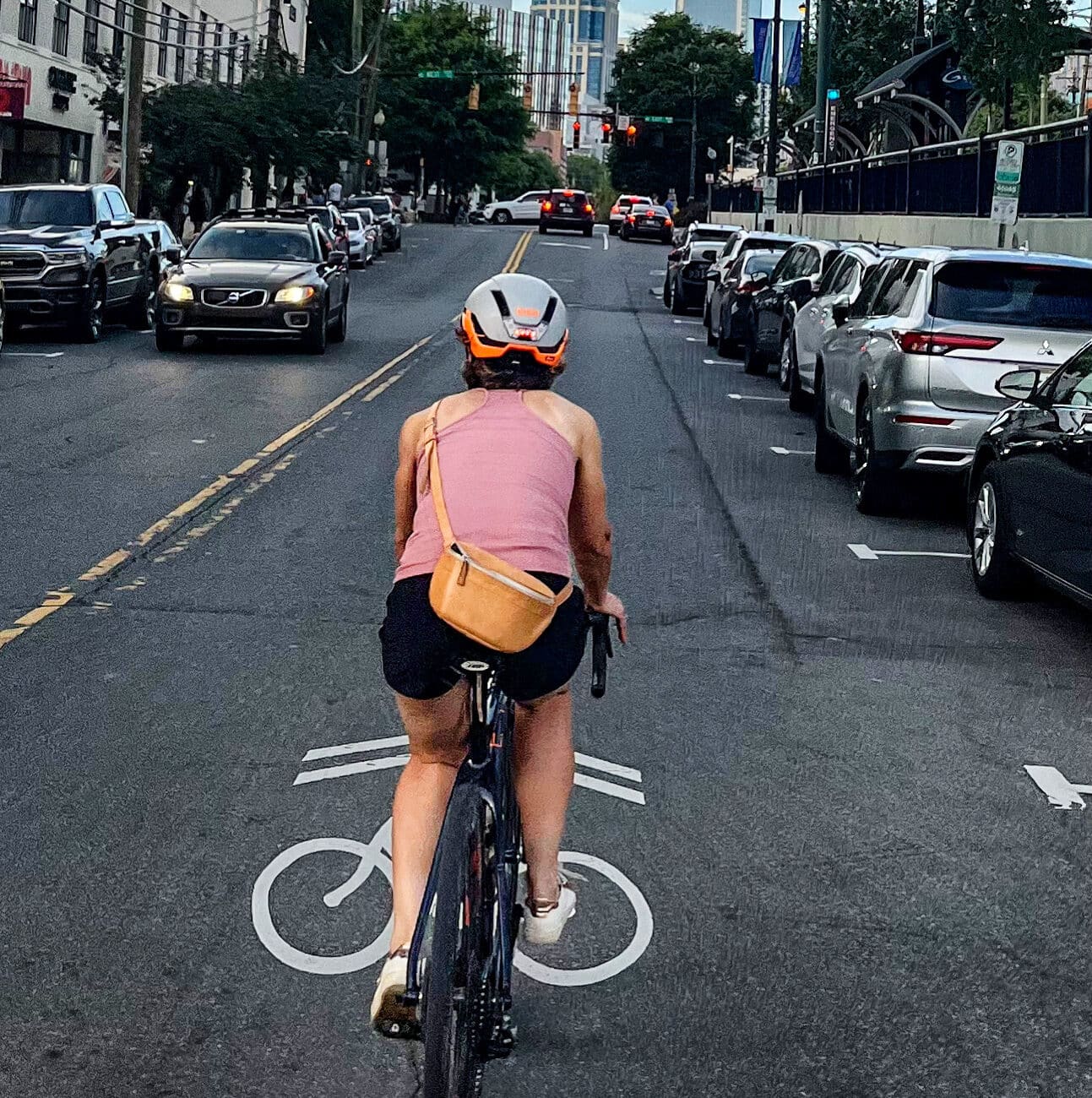Police Ticket Cyclist For Taking Lane, Ticket Thrown Out (VIDEO)
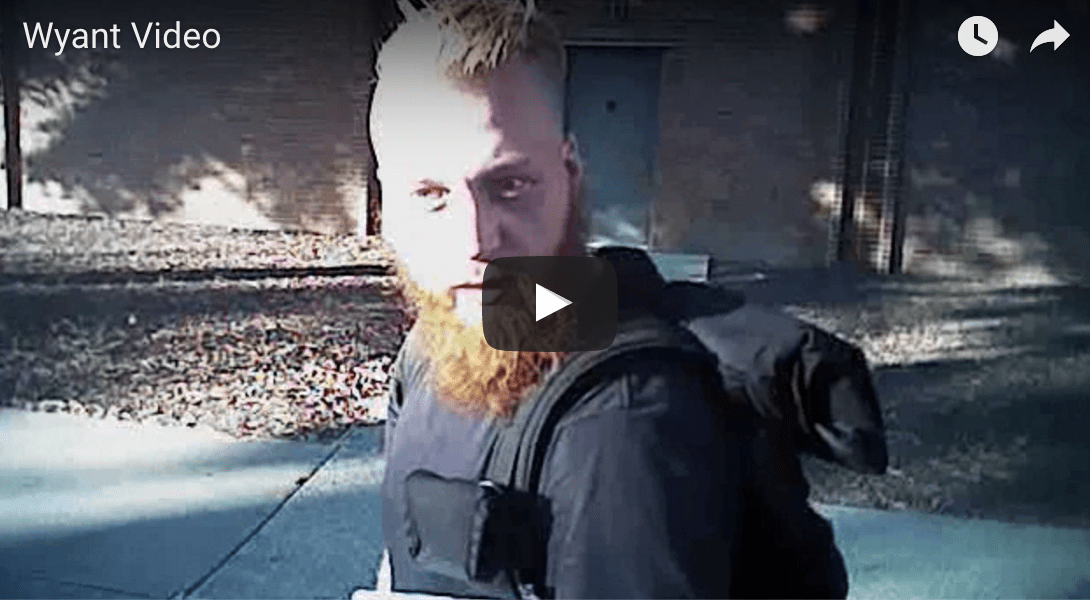
Police Officers were Wrongly Cracking Down on Cyclists in Richmond, VA.
Bike Law’s Tom Bowden took control of the travel lane to justice this week in Richmond Circuit Court, on appeal from General District Court, by successfully appealing a traffic ticket wrongfully issued to Taylor Wyant for not riding on the far right of the roadway. Not only did Bowden get Wyant’s ticket thrown out and the case filed against Wyant dismissed, but Bowden and Bike Law helped develop precedent that protects all of us who regularly, lawfully and respectfully take control of the travel lane while riding our bicycles.
Check out this video: you will see Wyant riding his bicycle at approximately 15-20mph towards the center of a narrow travel lane in a compact urban area. You will see that just after Wyant passes a UPS truck partially parked in the narrow travel lane and a row of parked cars, and just before he arrives at a four-way intersection controlled by stop signs, Wyant is passed at a distance that appears to be less than three feet by one law enforcement officer and then is stopped and written up by another.
Notice that another cyclist is pulled over, apparently for the same “infraction,” in the same video. Officer states that he arrests cyclists often. Here’s proof of zealous enforcement of the wrong interpretation of the law.
Applicable Virginia law reads as follows:
Any person operating a bicycle . . . on a roadway at less than the normal speed of traffic at the time and place under conditions then existing shall ride as close as safely practicable to the right curb or edge of the roadway, except under any of the following circumstances:
- When overtaking and passing another vehicle proceeding in the same direction;
- When preparing for a left turn at an intersection or into a private road or driveway;
- When reasonably necessary to avoid conditions including, but not limited to, fixed or moving objects, parked or moving vehicles, pedestrians, animals, surface hazards, or substandard width lanes that make it unsafe to continue along the right curb or edge;
- When avoiding riding in a lane that must turn or diverge to the right; and
- When riding upon a one-way road or highway, a person may also ride as near the left-hand curb or edge of such roadway as safely practicable.
For purposes of this section, a “substandard width lane” is a lane too narrow for a bicycle, electric personal assistive mobility device, electric power-assisted bicycle, motorized skateboard or foot-scooter, or moped and another vehicle to pass safely side by side within the lane.
Va. Code Ann. § 46.2-905. The statute is similar, but not identical, to Maine’s statute. Several aspects of Maine’s law are more favorable to bicyclists than the Virginia law and may prove to be a helpful resource for advocates across the country.
Throughout the Wyant stop, the ticketing officer and Wyant remain at loggerheads over whether Wyant was required to ride to the right under the statute. Noteworthy is the fact that not once in the exchange does the officer acknowledge the safety hazards associated with the UPS truck partially in the way or the row of parked cars (i.e. the possibility of dooring) that Wyant was forced to navigate and needed to take into consideration for his safety and the safety of other traffic shortly before he was pulled over by the ticketing officer. Likewise, the ticketing officer fails to recognize that it would be unsafe for Wyant to stay to the far right when approaching an intersection where both right and left turns are allowed and where riding to the far right might make him less visible and more susceptible to harm. Further, there is no discussion about the width of the travel lane, or the fact that sharrows (i.e. chevrons) were painted on the blocks immediately before and after the block where Wyant was pulled over and on other narrow roadways in the vicinity.
However, when Wyant got his day in Court, it was not the exceptions to the rule that allowed Tom and his client to prevail in court—it was the rule itself.
Before stopping Wyant, the officer failed to take into account Wyant’s speed and the important language of the very first paragraph of the statute.
The opening language of the statute makes it clear that the “far right rule” only applies if a bicyclist is traveling at less than the normal speed of traffic at the time and place under conditions then existing.
Here, the bicyclist was traveling the normal speed of traffic approaching a four-way stop in a compact urban area and should never have been pulled over. End of story. At the hearing, the officer admitted that he did not check or take into account the bicyclist’s speed. As such, there were no grounds for the ticket and the case was dismissed.
Congratulations once again to bicycle crash attorney Tom Bowden for a close read and application of the law!
Attorney Boxer-Macomber, who wrote this piece, has prepared an in depth analysis of Maine’s statute on where bicyclists may ride. Read it here. While each state’s law is different, bicyclists and advocates from across the country will find the piece informative. Note the explicit discretion given to bicyclists in the Maine statute, which allows them to choose the safest place to ride.

Lauri Boxer-Macomber has been an avid rider for decades. Lauri’s Maine law practice is focused on advocating for the rights of bicyclists, pedestrians, and other vulnerable road users.
Lauri’s riding experience and legal training are complemented by her advocacy work. She is an active Board Member of the Bicycle Coalition of Maine, a Governor of the Maine Trial Lawyers Association, and a Member of the American League of Bicyclists. She also chairs the Bicycle Coalition of Maine’s Policy and Legislation Committee and is one of the founding members and facilitators of the Bicycle Coalition of Maine’s Law Enforcement Collaborative, a group of law enforcement officers, planners, bicycle advocates, and others who meet regularly with the goal of improving safety on Maine’s roadways.
-
From Winner to Advocate: One Cyclist’s E-Bike Journey
Two years ago, on a family trip to Switzerland, my wife and I rented two electric-assisted mountain bikes, or e-MTBs, to tackle some steep trails near the Matterhorn. The salesperson said, in no uncertain terms, that the new e-MTBs were the way of the future, and we should give them a try. So we did. …
-
A Comprehensive Guide to E-Bikes in Louisiana: Laws, Tips, and Choosing the Best E-Bike
E-bikes are popping up everywhere. If you’re riding one in Louisiana or thinking about getting one, you may have questions about the laws, safety tips, and how to pick the right bike. That’s exactly what this post is here for! We’ll break down what you need to know about riding e-bikes in Louisiana, from legal…
-
The Lisa Torry Smith Act: A Win for Cycling Safety in Texas?
The Lisa Torry Smith Act brings important changes to Texas law. It makes clear that cyclists can ride in crosswalks and now requires drivers to stop and yield before entering a crosswalk with a pedestrian or cyclist. A gap in Texas law is allowing some drivers who hit people in crosswalks to get off scot-free,…
-
Far Right?! I was taking a LEFT!
Even Bike Law lawyers get hassled. Like many of us, riding for me is stress relief; it’s an escape from conflict and a busy schedule. Sometimes incidents on the road have the opposite effect and one incident this weekend made me question the state of humanity. It was not an unusual event, nor a particularly…
-
E-BIKES ARE LEGAL IN NC (WELL, SOME OF THEM)
Love them or hate them, e-bikes continue to rise in popularity. At the same time, lawmakers struggle to keep up with the developing technologies. Every week I get multiple inquiries from people trying to navigate North Carolina’s e-bike laws. If you’re confused, you’re not alone. We could easily fill a book with all the latest…
-
BIKES & CRIMINAL JUSTICE
Many of our cycling clients find themselves having to interact with the criminal justice system. Typically, it’s because the driver who hits them (or their family member) is charged with a crime or traffic offense. Occasionally bicyclists themselves are charged with traffic offenses! Every state’s criminal laws are different, but there is a lot of…
-
Another Successful Road Defect Case, This Time a $750,000 Settlement in Georgia
We recently shared the story of a trial victory from the State of Texas where a bicyclist was injured due to a defect in a road maintained by the Texas Department of Transportation. Texas Road Defect We now can tell the story of another huge win in a road defect case, this time from our Bike Law…
-
One Million Dollars for Texas Road Defect
The Texas Department of Transportation had offered cyclist Mike Bagg $0. Recently, attorneys with the Bike Law network took a case to a trial against a titan of a defendant: the Texas Department of Transportation. TxDOT was represented by the Attorney General’s Office, one of Texas’ largest legal teams. We had a great client, but it was…
-
More Roads = Better Transportation, And Other Myths
2023 got off to a rough start for Charlotte, North Carolina, particularly in the context of road safety. Within about a week, we lost a young woman who was riding her bicycle, a pedestrian killed in the same area of town, and four people were killed in a car wreck on I-85 in the University…


